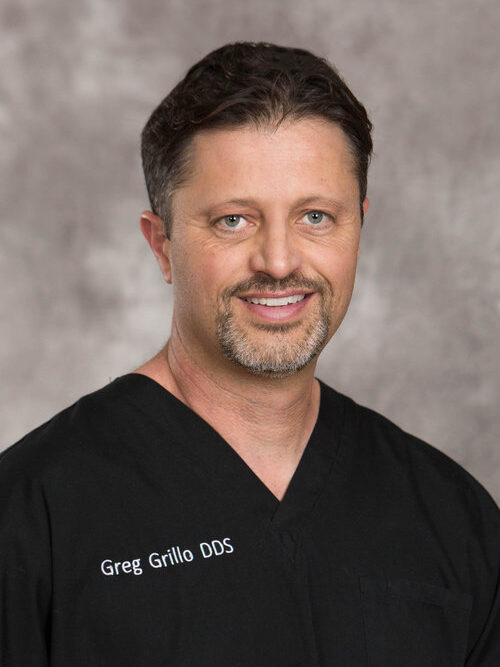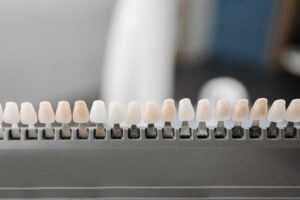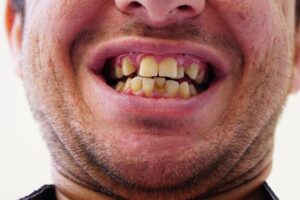The wisdom teeth (third molars) are the last permanent teeth to erupt. They usually come in between the ages of 17 and 25 years. In some people, the wisdom teeth never erupt. In others, they erupt without causing any problems. However, many people develop impacted wisdom teeth that do not erupt at all or only partially erupt because of a lack of space in the mouth. Impacted wisdom teeth need to be removed to avoid complications. Indeed, wisdom teeth removal is one of the most common dental surgeries performed in the US and worldwide. Please keep reading to find out what to expect after this dental procedure, including how to sleep after wisdom teeth removal.
What happens if an impacted wisdom tooth is not removed?
If an impacted wisdom tooth is not removed, it can cause pain, infection, and tooth decay because a partially erupted tooth is difficult to clean. Also, impacted wisdom teeth increase the risk of developing cysts around the teeth as well as inflammatory gum disease called periodontitis with pain, swelling, and bleeding in the gums. Moreover, impacted wisdom teeth can damage the adjacent teeth and surrounding jaw bone, leading to the need for expensive and complicated orthodontic treatments to straighten neighboring crooked teeth.
Your dentist may recommend wisdom teeth removal even if you don’t have any symptoms because they can still lead to diseases and complications.
How do dentists perform wisdom teeth removal?
Dentists perform wisdom teeth removal using local anesthesia, sedation anesthesia, or general anesthesia (special cases only). The tooth is removed after making an incision (cut) in the gum tissue. Once the tooth is pulled, the surgical site is cleaned and stitches are put in place to speed up healing. A gauze is applied over the tooth extraction site to help a blood clot form and control bleeding.
What to do during recovery from wisdom tooth removal?
Your dentist will give you detailed instructions, but briefly, you will be asked to:
- Avoid spitting excessively as this can dislodge the blood clot at the surgical site.
- Take over-the-counter pain pills such as acetaminophen or use a cold pack for pain relief and to reduce swelling and bruising.
- Limit activity for the rest of the day and avoid strenuous activities for a week.
- Drink plenty of water but avoid hot drinks and caffeinated, carbonated, or alcoholic beverages for the first 24 hours.
- Eat soft foods like ice cream, yogurt, and applesauce for one day.
- Avoid brushing your teeth, using a mouthwash, or rinsing your mouth for 24 hours.
- Avoid smoking as this can delay healing.
- Go back into the dental office for stitch removal (if you didn’t get stitches or got dissolvable stitches, this may not be needed).
What is dry socket after wisdom tooth extraction?
Normally, a protective blood clot forms at the site of extraction of an adult tooth. Dry socket (alveolar otitis) is the most common complication after wisdom teeth removal or extraction of adult teeth. It is a painful condition in which a blood clot fails to develop at the site of the wisdom tooth extraction. It can also happen if the blood clot gets dissolved or dislodged before the wound has had a chance to heal. OTC pain medication is not typically enough to control the pain from a dry socket. Your dentist may need to flush out the socket, apply a medicated gel or paste, and give you prescription pain medication. You may also need to flush the socket at home to remove debris from the site and speed up healing.
Why is it hard to sleep after wisdom tooth extraction?
As mentioned, a blood clot forms at the extraction site after wisdom teeth removal. If this blood clot becomes dislodged, it can cause dry socket and severe pain, which can affect your sleep. You may notice pain in your ear and pain radiating to your chin. The symptoms may be worse at night.
How can I prevent dry socket while sleeping?
Do the following for first 24-48 hours after wisdom teeth removal to prevent dry socket:
- Avoid vigorous spitting.
- Do not use a straw.
- Do not smoke.
- Eat soft foods and avoid crunchy, tough, hard, sticky, or chewy foods.
- Do not brush your teeth for the first 24 hours.
- Do not brush over the extraction site directly for 3-5 days.
- Keep the gauze in place as directed by your dentist. However, do not sleep with the gauze in your mouth as this can be a choking hazard. Also, remove the gauze if you are taking medications that can make you drowsy during the daytime.
What is the best position to sleep after wisdom teeth removal?
The best position to sleep after wisdom teeth removal is on your side with your head elevated on at least one pillow. You should avoid sleeping flat on your back. This is because the wisdom tooth extraction site can ooze during the initial healing period. Sleeping on your side can help to control swelling and pain. If you have trouble sleeping on your side after wisdom teeth extraction, try keeping a few pillows behind your back for support.
When can I sleep normally after wisdom teeth removal?
You can sleep normally 72 hours after wisdom teeth removal or after your bleeding has stopped.
If you’re looking for a dentist for wisdom teeth removal, Express Dentist has a nationwide network of trusted dental professionals. Call us today and we’ll put you in touch with a dentist in your area.
In the meantime, here’s some more information about what to expect with wisdom tooth removal.
About the author

Dr. Greg Grillo
Dr. Greg Grillo DDS studied at the University of Washington where he received a bachelors degree with Honors and later attended dental school on the same campus. Following school Dr. Greg served in the United States Navy as a dental officer. During this time he received advanced training in specialty areas of dentistry while also treating families of members of the military.
As well as sharing valuable information on dentistry and oral health, Dr. Greg remains a practicing dentist to this day. He works with families in the Okanogan Valley where he lives with his wife and three children.
- Dr. Greg Grillo#molongui-disabled-link
- Dr. Greg Grillo#molongui-disabled-link
- Dr. Greg Grillo#molongui-disabled-link
- Dr. Greg Grillo#molongui-disabled-link





